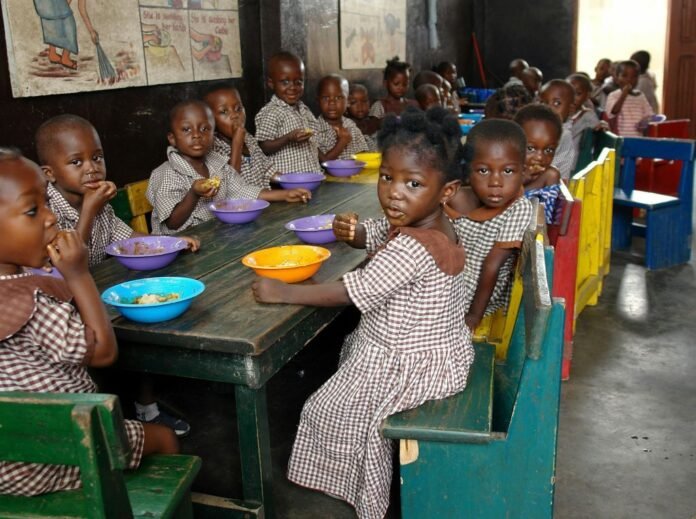The Federal Government has unveiled plans to expand the National Home-Grown School Feeding Programme (NHGSFP) to reach 50 million pupils by 2026.
Dr. Aderemi Adebowale, National Programme Manager at the National Social Investment Programme Agency (NSIPA), disclosed this in Abuja during an interview. She said the scheme will soon cover early primary school years and even out-of-school children.
“We are working to include early years — primary 1 to 3, primary 4 to 6 — in the school feeding programme, and also out of school children, which we are handling step by step to integrate,” Adebowale explained.
Feeding Millions, Controlling Prices
The target is ambitious. “By the year 2026, we are looking at feeding close to 50 million pupils in primary school in Nigeria,” Adebowale said.
She added that meals should cost between ₦500 and ₦1,000 per child. “Even at ₦500 per child, you should be able to still give the children a nutritious and delicious meal on a daily basis,” she noted.
To control costs, NSIPA is aligning smallholder farmers, aggregators, vendors, and partners into a single supply chain. “With this alignment, we’ll be able to control price from the rock bottom. We are not going to be doing market prices,” she stressed.
Adebowale said prices would be agreed upon with suppliers and followed up with strict monitoring of payments and service delivery.
Renewed Hope for Out-of-School Children
On May 27, 2025, the Federal Government launched the Alternate Education and Renewed Hope National Home-Grown School Feeding Project. The initiative was inaugurated in Abuja by Prof. Nentawe Yilwatda, now National Chairman of the ruling APC.
The programme aims to provide meals for 20 million out-of-school and underserved children by 2026. It is being rolled out in partnership with the National Commission for Almajiri and Out-of-School Children Education, and the National Identity Management Commission.
Yilwatda said the feeding project is a cornerstone of the National Social Investment Programme under President Bola Tinubu’s administration. The government believes the project will fight hunger, improve learning, and encourage school attendance.
Do you think free meals will be enough to draw Nigeria’s out-of-school children back to class, or are more incentives needed?
For more details on global school feeding standards, see World Food Programme data and UNICEF’s report on child nutrition.
Rate, Like 👍, Comment💬, share this article and Follow us on our social media handles. You can also Submit your own story to get featured and earn rewards!







